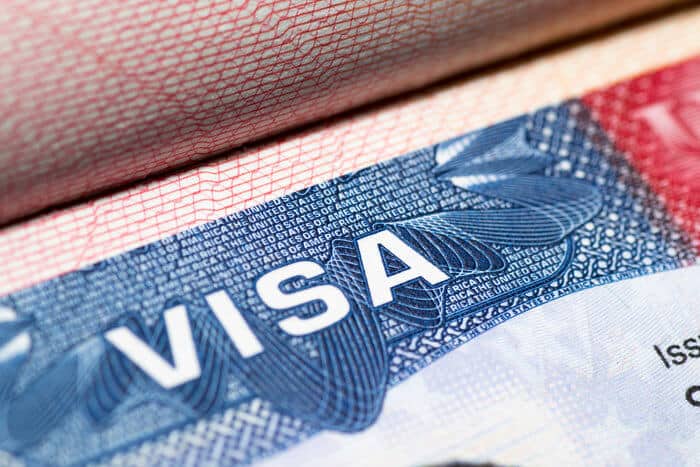Myths about Giving Up American Citizenship
April 30, 2024
This article dispels the most common myths about giving up American citizenship and the importance of transparency in the realm of going offshore and internationalizing your life.
The biggest problem about US citizenship renunciation is that there are many myths about giving up American citizenship floating around the blogosphere – most of them from people who’ve never actually renounced.
That’s why we try hard to bring transparency to the offshore industry. A big part of our business is dispelling this kind of misinformation and telling people about real, legal ways to solve their problems.
Our CEO, Mr. Henderson, has actually renounced his US citizenship, so whatever we preach, we’ve practiced ourselves.
If you want to renounce your US citizenship or green card, or if you want to go where you’re treated best, get in touch with us today. We’ll help you do just that.
Myth 1: You Have to Cut All Financial Ties to the US
One of the main reasons why people hesitate to give up their US citizenship is the mistaken belief that you must cut all of your financial ties to the US if you renounce.
When we discuss giving up American citizenship with people, one of the first questions they ask is whether they’ll need to close their bank accounts and credit cards or sell all of their US assets.
This myth comes from some of the processes people in other countries have to go through to become tax non-residents.
Countries that use residential taxation, such as the UK and Canada, require citizens to remove most – if not all – of their assets from the country in order to leave their tax systems.
The US, on the other hand, works a bit differently. Although you need to give up your citizenship to escape the US tax net, you won’t necessarily need to close your bank account or sell your summer home.
In fact, the US actually encourages non-citizens to bank in the US, and if you’re not a US resident, then you won’t need to pay income tax on any interest you accrue on your accounts.
You can also own a home or raw land, and if you own a US company, you can likely keep it if it’s a C-corporation or LLC. S-corporations, however, cannot be owned by non-citizens.
In many cases, you may even be able to keep your US credit cards.
Of course, we can’t speak for all banks and financial institutions – some may decide they don’t want to deal with non-citizens.
However, if you do decide to renounce your US citizenship, you can have US bank accounts, earn tax-free interest, open certain credit cards, and keep most of your US assets.
Myth 2: You Have to Pay US Taxes for 10 Years After You Leave
Over the years, the IRS has imposed various requirements for people giving up American citizenship.
After a high-profile renunciation in the 90s upset a number of people, the IRS decided that renunciants shouldn’t be allowed to leave the tax net right away, so they forced anyone who renounced to file and pay taxes for ten years after they left.
Although this rule was in place for a few years, it was later replaced with an exit tax.

However, this exit tax only applies if your net worth is more than $2 million, you’ve paid a lot in federal taxes over the years, or you haven’t complied with the IRS.
This process is much easier – either you pay an exit tax, or you don’t. And, once you’ve filed your final return, you’re finished and can move on with your life.
Myth 3: You Don’t Get Social Security if You Renounce
Contrary to popular belief, you do – in fact – receive your social security benefits after giving up US citizenship.
As much as social security is technically a Ponzi scheme, the money that you pay in is technically yours, so the US government will pay it to basically anywhere in the world once the time comes.
Obviously, you won’t be paying into it anymore, but you’ll get what you put in thus far.
However, unless you’ve paid much into social security, it probably isn’t your largest concern as a six- or seven-figure entrepreneur.
Although you can keep your social security, you’ll lose Medicare or other government benefits, such as government or military pensions.
Myth 4: Giving up American Citizenship Means Losing Your Social Security Number
When we help others renounce their US citizenship, a handful of questions seem to always come up. One of them is, “What happens to my social security number?”
The answer: nothing.
Even if you renounce, you have your social security number for life.
So, if you go to open a US bank or credit account, you can use your social security number on your application.
As always, you need to be honest with them and tell them that you’re a non-resident alien, but your approval odds will go up if you can provide a social security number.
Myth 5: Renouncing US Citizenship is the Same Thing as Relinquishing It
We frequently write about renouncing US citizenship, not relinquishing it, for one simple reason – renouncing is the process that works for most people.
However, it is possible to get rid of your US citizenship by relinquishing it.
Relinquishing your citizenship more or less means doing something that causes you to lose your US citizenship.
Renouncing your citizenship, which we often talk about here, is technically a form of relinquishment, but the procedures for formal renunciation and other forms of relinquishment are drastically different.
To renounce your US citizenship, you go to a representative of the US Department of State and make a formal statement that you no longer wish to be a US citizen.
You fill out paperwork, pay the applicable fees, sign an oath, and hand in your passport.
Relinquishing your US citizenship, on the other hand, means performing other expatriating acts, such as joining a foreign military, outside of the presence of a US State Department officer with the clear intention of relinquishing your US citizenship.
After you perform that act, you must apply for a Certificate of Loss of Nationality at the earliest possible opportunity.
Performing a qualifying act of relinquishment, however, is very difficult to do. US courts have set a high bar for what kinds of actions qualify for relinquishment in order to keep it from happening inadvertently.
Because of that, relinquishing US citizenship typically only works in a handful of cases.
Most people who benefit from relinquishment are “Accidental Americans” – people who became US citizens by being born on US soil despite having no real ties to the US. Unless they acknowledge their US citizenship by registering to vote or paying taxes, Accidental Americans can generally prove that they obtained their current nationality with the intention of relinquishing their US citizen status.
Other high-profile cases often involve dual nationals who relinquished their US citizenship to serve in a foreign government or persons who obtained citizenship in a country that does not permit dual citizenship, such as Japan or Singapore.
The main advantage of relinquishment is that it allows you to claim that your US citizenship ended at an earlier date, which can be beneficial in terms of taxation.
However, as with most things in the offshore world, the relinquishment process often gets distorted into a “magic loophole” that allows you to renounce without paying extra fees – even though there’s no cost benefit over renouncing.
Unless you’re a part of the very specific group of people that relinquishment applies to, you’ll need to renounce the old-fashioned way. The US State Department rarely cuts corners on this matter, so neither should you.
Myth 6: You Can Never Return to the US After you Renounce
Another issue that makes people hesitant about giving up American citizenship is this myth that they can never return to the US if they hand in their US passports.
Part of this fear stems from a law called the Reed Amendment, which essentially says that if the US State Department thinks that you left for tax reasons, then it can deny you entry back into the US.

However, this law really hasn’t been successfully implemented.
However, this law really hasn’t been successfully implemented.
Although the government could try and pass a more workable version of this law to bar renunciants from returning to the US – and that’s certainly possible given the highly nationalist sentiment in the country – the Reed Amendment, as it stands, isn’t really all that applicable to most people.
In fact, most people who renounce their American citizenship can return to the US rather easily.
If you’re a citizen of a visa waiver country, you can register with ESTA and be good to go with your tourist visa, and if you have Canadian citizenship, then you don’t even need ESTA.
However, unless you can claim citizenship by descent, the average person is not going to get a passport from one of these countries. If that’s the case, you have to follow another set of rules, and that means you’re going to have to get a visa.
You’re going to need to go to a US embassy, make an appointment, and demonstrate the purpose of your visit just like everyone else.
The State Department won’t be out to get you, but you should make sure that you can qualify for a US visa if you plan on returning to the US after you renounce.
Don’t Fall For The Myths
While giving up US citizenship certainly requires some work, it’s not as difficult in terms of cleanup as many people make it out to be.
You don’t need to shut down everything and upend every little aspect of your life that has to do with the US in order to renounce.
This isn’t to say that renouncing is something minor – it’s a big change in and of itself.
However, if you understand these myths, you can make a more informed decision since the process isn’t as confusing as it’s so often made out to be.For a detailed and tailored Action Plan regarding your exit from the US, set up a call with us today.


Is Grenada Safe for Visitors, Residents and Families?
Evaluating a nation for tourism, relocation or investment begins with a single, non-negotiable factor – safety. Security, from both a personal and financial point of view, is the foundation upon which all other considerations rest. And while it’s easy to assume that stability is a given in the developed world, recent challenges in countries like […]
Read more

Is Antigua Safe for Tourists, Families and New Residents?
Security is a cornerstone of any serious investment migration strategy. For high-net-worth individuals (HWNIs) and globally mobile families, it ranks alongside tax efficiency, political stability, and quality of life as a key driver in deciding where to live, invest or acquire a second passport. Too often, safety is assumed to align with economic development. Countries […]
Read more

Is St Kitts and Nevis Safe? Tips for Tourists and Residents
Safety is a non-negotiable factor for anyone considering whether a country is right for travel, relocation or investment. Overlooking such a vital consideration carries serious consequences, and the stark truth is that assumptions based on a country’s global image often fall short of reality. Cases in point include the following countries: The takeaway is clear: […]
Read more




